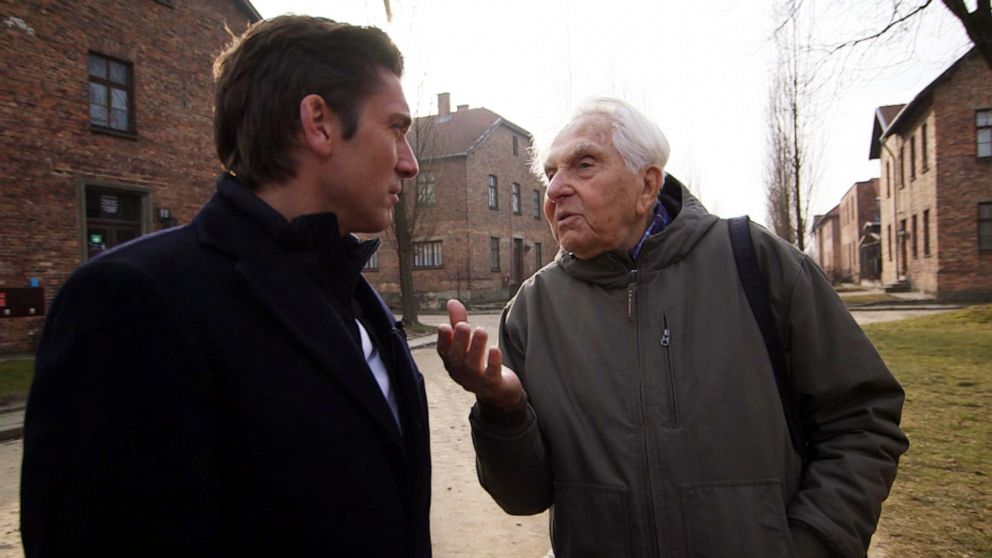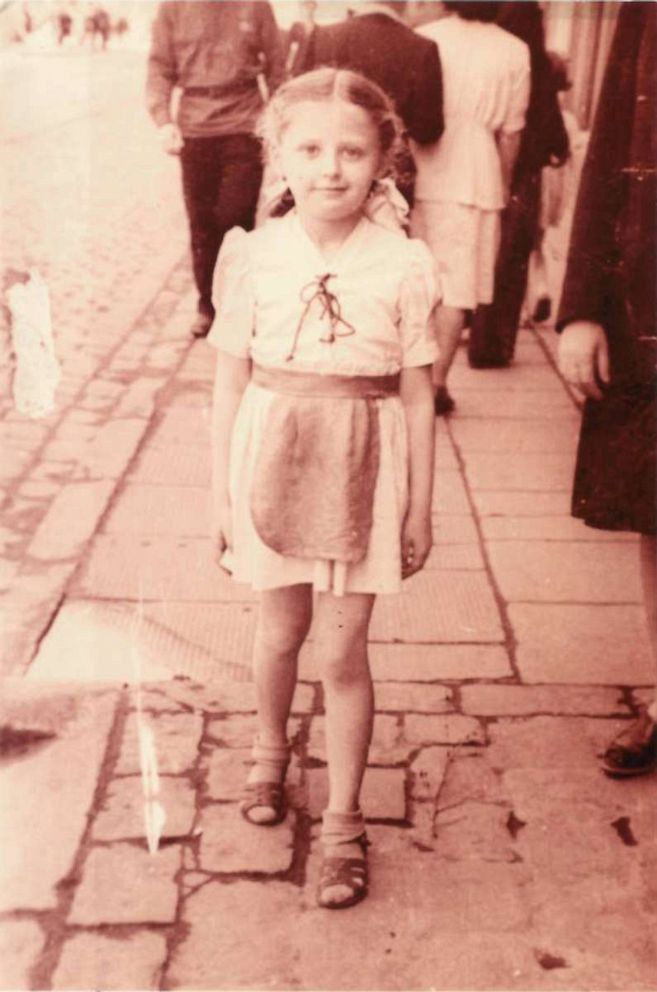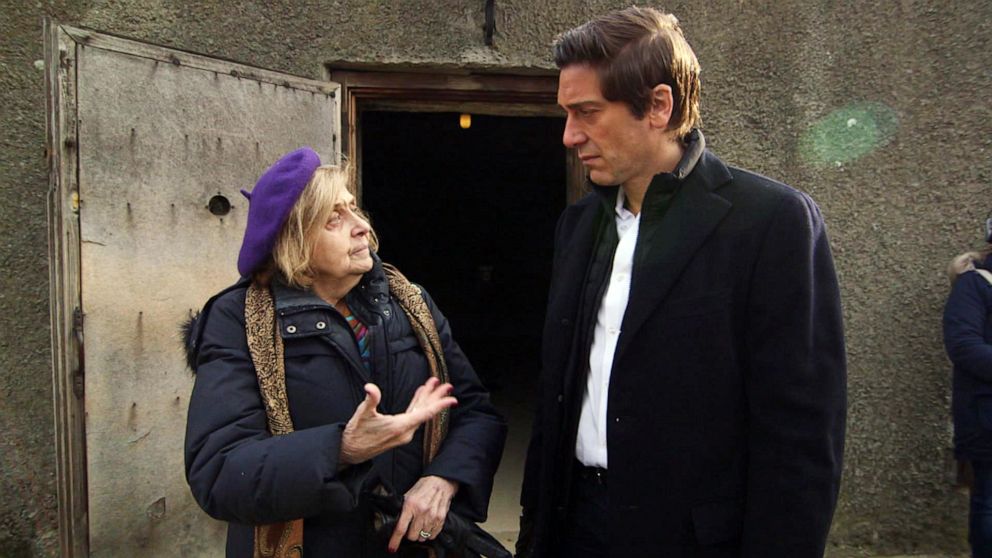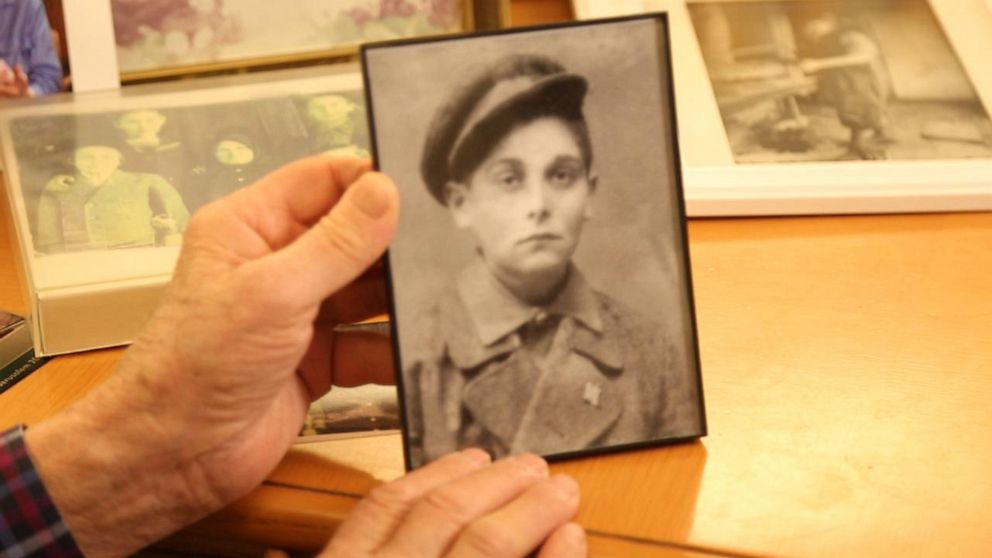Commemorating the liberation of Auschwitz 75 years later: 'Auschwitz is the symbol. We can't let that symbol go away'
The Russians liberated the Nazi death camp on Jan. 27, 1945.
As Auschwitz survivor David Marks walked the barracks of the former death camp, 75 years after it was liberated by the Russians, he spoke to ABC News anchor David Muir about the "obligation" he felt to return and tell his story.
"I have 10 grandchildren. ... They should know what happened. They should know that, never again. It shouldn't happen anywhere in the world," said Marks, 91.

On Monday, Poland held a commemorative ceremony to remember the 75th anniversary of the camp's liberation and honor the more than 1.1 million people -- including nearly a million Jews from all over Europe -- who were killed by the Nazis at the Auschwitz-Birkenau complex during the Holocaust.
"Auschwitz itself bears witness to what happened," said Ronald Lauder, president of the World Jewish Congress who brought the survivors to the camp. "Auschwitz is the symbol. We can't let that symbol go away."
Lauder was instrumental in preserving the camp -- now the Auschwitz-Birkenau Memorial and Museum -- and also led Monday's events with Polish President Andrzej Duda. It's estimated that 1.3 million people -- mostly Jews -- were sent to Auschwitz between 1940 and 1945, according to the U.S. Holocaust Memorial Museum.
Marks, who had not been back to Auschwitz since the liberation, and other survivors returned to the camp this weekend for the anniversary. Marks told Muir as they walked the grounds that he had not discussed the horrors he'd witnessed for years.
He was 16 when he arrived to the camp. He never saw his parents, or many of his relatives again. Some close family members were killed that first afternoon at Auschwitz.

“I was maybe 10 blocks from the crematorium and we had no idea what they’re burning there,” he said.
When the Americans arrived to liberate Dachau, the camp where he'd been relocated, Marks said he and the others didn't even have the strength to rejoice in their freedom.
The Russians arrived to Auschwitz on Jan. 27, 1945 but by the time the war had ended that year, Adolf Hitler and the Nazis were responsible for the slaughter of 6 million Jews across Europe.
Auschwitz itself bears witness to what happened.
Marks, who came to Auschwitz this weekend with his fiance Kathy, said he'd hidden the tattoo number the Nazis had given him from his own four children until their early teen years.
"I came back here to relive this moment and ... I'm going to leave it behind and go back to my normal life," he said.

Tova Friedman, 81, was just 5 and a half years old when she arrived to Auschwitz with her mother.
Friedman, who returned to Auschwitz this weekend with her daughter-in-law, told ABC News that visiting the barracks had transported her back to the Holocaust and that the terrible memories had come flooding back.
"(It's) very hard," she said. "Very hard because I see the little children in my head. ... These were my friends. ... There's so many things that I remember."
Friedman said that she'd been brought to Auschwitz after the Russians liberated the camp.
Now making the journey to Auschwitz to help remind the world about the Holocaust, she said she also wanted to let the dead know that they had not been forgotten by her.
"I'm here to tell those who are up in smoke, we're here. We remember you and we're so sorry and we'll keep your memory alive," she said. "The world needs to know and to be aware of the evil, to stop the evil before it spreads. This is the end of evil. This is what it is. Like somebody once said, you start burning books and then ... you burn people. ... This is (the) end of evil."

After she entered the camp's crematorium, she said a prayer -- the Kaddish. She told Muir that she'd been led to the crematorium during the Holocaust. She'd gotten undressed but the shower she'd been told about never came. Hours later, she and others were told to put their clothes back on.
"I can just picture it all, you know? ... We have to remember them. I can picture it. I can picture them. I can picture the bodies," she said.
As the Russians closed in on Auschwitz, Friedman said that her mother chose to hide and possibly die instead of joining the Nazi death march. Friedman and her mother hid among the dead in the women’s hospital.
“I don’t know how long it took but I heard Germans coming in. … They were running away but they were shooting people who were almost dying anyhow. … I always heard those German boots. Sometimes I have nightmares about those boots,” she said.
Her mother eventually returned to get her and the Russians arrived.
Friedman told ABC News that it was important for her daughter-in-law to visit Auschwitz so she could experience the camp and then share it with her children.
"She's the mother of my grandchildren. ... They trust her. She's the next generation that she can convey to them the danger of hatred and prejudice," she said. "It's not OK to destroy somebody who does not think like you, doesn't look like you, doesn't believe in the religion like you."
Lauder said that despite the horrors the survivors witnessed at Auschwitz, none of them left the death camp with hate.
"They came out and started new lives. They didn't go for revenge. ... They went out. They started their families. ... They're coming with their grandchildren. We should not have the grandchildren have the same problem that they had in 1930s. Shame on us if we allow it to happen," he said.
Social media:
Social media:
twitter.com/AuschwitzMuseum
facebook.com/AuschwitzMemorial
Instagram.com/AuschwitzMemorial
Youtube.com/AuschwitzMemorial
ABC News' Emily Shapiro and The Associated Press contributed to the reporting in this story.